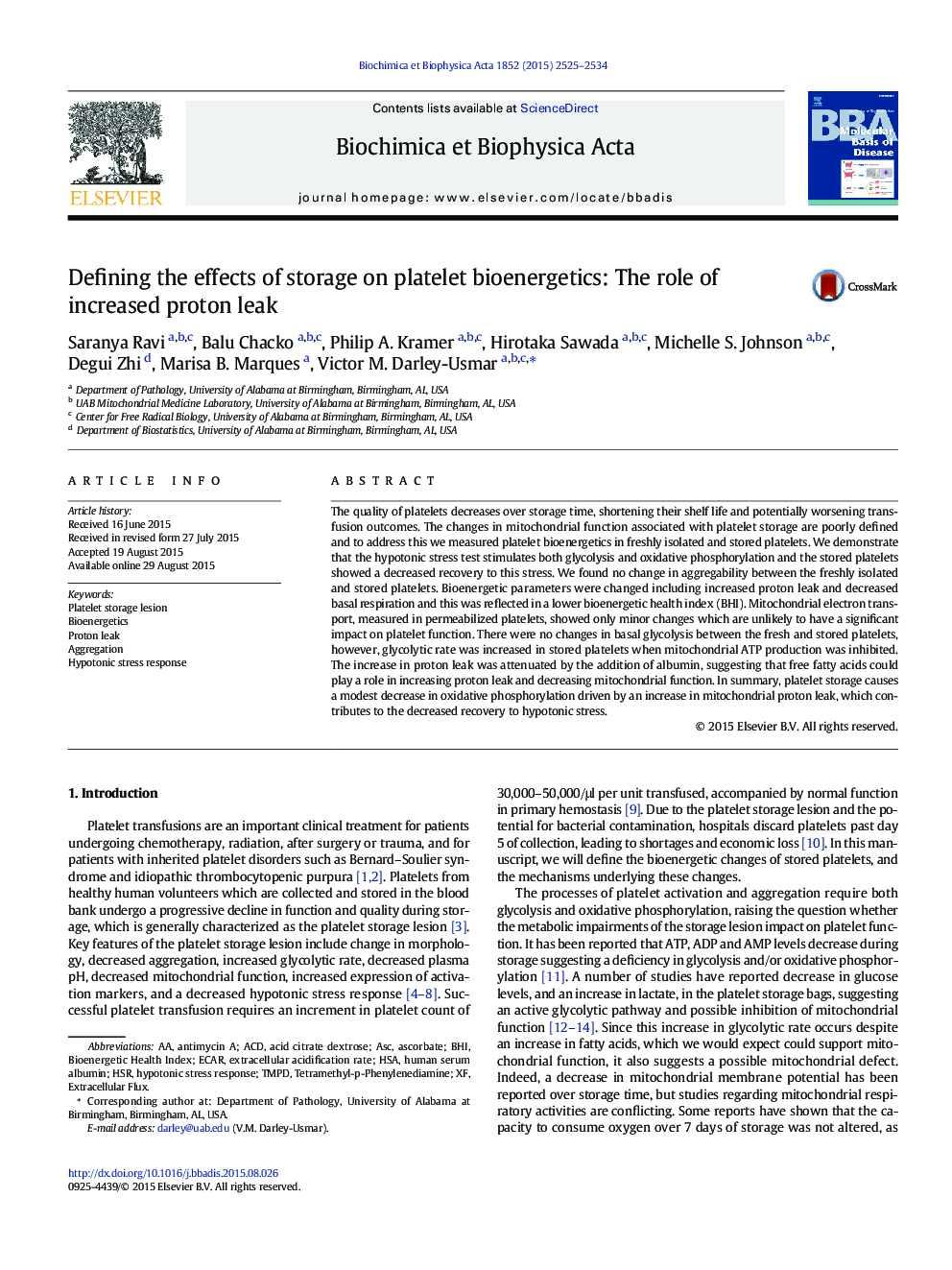| Article ID | Journal | Published Year | Pages | File Type |
|---|---|---|---|---|
| 1904559 | Biochimica et Biophysica Acta (BBA) - Molecular Basis of Disease | 2015 | 10 Pages |
•The functional and bioenergetic differences between freshly isolated and stored platelets were determined.•Decreased recovery after hypotonic stress in stored platelets compared to freshly isolated was shown.•Decreased bioenergetic parameters including basal, ATP-linked OCR, increased proton leak and reserve capacity were observed in stored platelets.•Increased proton leak in stored platelets was dependent on fatty acids.
The quality of platelets decreases over storage time, shortening their shelf life and potentially worsening transfusion outcomes. The changes in mitochondrial function associated with platelet storage are poorly defined and to address this we measured platelet bioenergetics in freshly isolated and stored platelets. We demonstrate that the hypotonic stress test stimulates both glycolysis and oxidative phosphorylation and the stored platelets showed a decreased recovery to this stress. We found no change in aggregability between the freshly isolated and stored platelets. Bioenergetic parameters were changed including increased proton leak and decreased basal respiration and this was reflected in a lower bioenergetic health index (BHI). Mitochondrial electron transport, measured in permeabilized platelets, showed only minor changes which are unlikely to have a significant impact on platelet function. There were no changes in basal glycolysis between the fresh and stored platelets, however, glycolytic rate was increased in stored platelets when mitochondrial ATP production was inhibited. The increase in proton leak was attenuated by the addition of albumin, suggesting that free fatty acids could play a role in increasing proton leak and decreasing mitochondrial function. In summary, platelet storage causes a modest decrease in oxidative phosphorylation driven by an increase in mitochondrial proton leak, which contributes to the decreased recovery to hypotonic stress.
